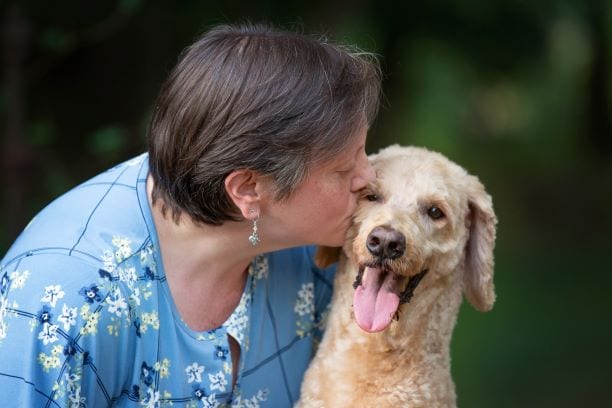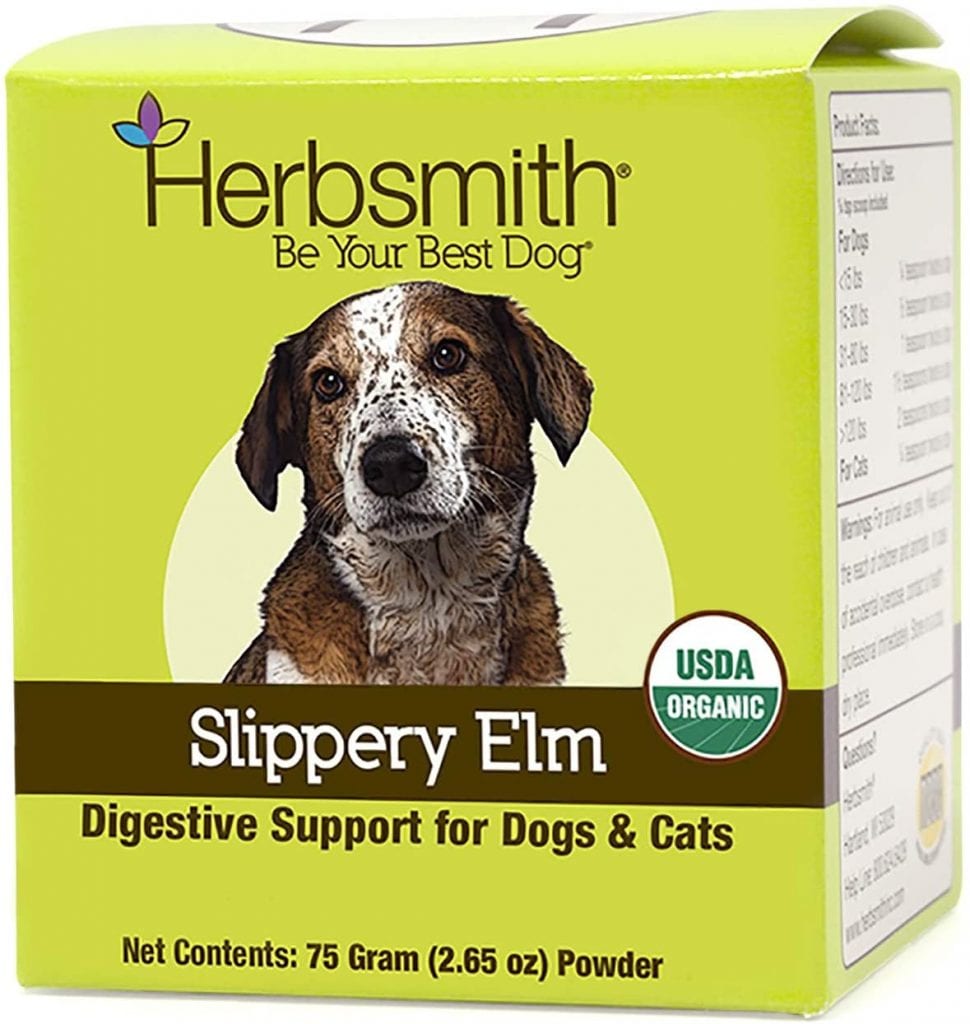Did you know Gastroesophageal reflux disease, or GERD in dogs, is a thing? We didn’t until recently. Here are some signs of GERD that we learned, courtesy of Angel Griffin’s mom, Stacy.
What GERD in Dogs Looked Like for Angel Griffin

Griffin was a beautiful, gentle therapy dog with osteosarcoma. This beautiful boy charmed us with his many New York City adventures for several months, even after lung metastasis was discovered. He remained happy and active during that time, but when he developed a non-productive, coughing hack, his momma Stacy became concerned.
Everyone assumed the coughing was related to Griffin’s lung metastasis. But that wasn’t the case. After making careful observations of when the coughing occurred, she shared video footage of the episodes with his veterinary oncologist. A GERD diagnosis was made.
She chronicled about GERD in dogs in Griffin’s blog:
One new medical concern is a cough that Griffin developed about a month ago that his oncologist believes is related to gastroesophageal reflux disease (GERD). The cough is a hacking, non-productive cough that ends with Griffin gagging and swallowing. It never occurs when he is active and almost always occurs when he has been lying flat for a period of time. The episodes are short (5-10 seconds) and occur 6-7 times a day at their worst.
To help Griffin feel better, Dr. Camps prescribed Famotidine (Pepcid), 20 mg daily. This helped for a little while. But when more coughing developed, his vet changed the routine. Here’s what worked for Griffin:
How Griffin’s Mom Helped his GERD symptoms
- Slippery Elm 800mg x2 daily (taken at least 1 hour after other medications)
- Omeprazole 20mg daily (either AM or PM, opposite Famatodine)
- Famatodine 20mg daily (either AM or PM, opposite Omeprazole)
The combination of therapies reduced his coughs to about 4-5 episodes in a 24/hour period.
A word of warning: Stacy would like folks to know that Slippery Elm can interfere with absorption of medication. Always administer at least an hour after medication is given.

Do you have an experience with GERD in dogs? Comment below or in the Tripawds Eating Health Discussion Forum topic, so we can all learn together!
Recommended Reading
Dr. Buzby shares: Acid Reflux in Dogs, Doggy Heartburn Explained
Gastroesophageal Reflux Disease (GERD) in Non-Brachycephalic Dogs
Gastroesophegeal Reflux Disease in Dogs (scientific paper for vets)